- Home
- Kay Hooper
Golden Flames Page 2
Golden Flames Read online
Page 2
Victoria frowned a little, disturbed. Not since her first meeting with Morgan so many years before had she felt such instant certainty about a man. She looked at the powerful length of him stretched out on the floor, his strength apparent, the danger of him shocking in the small, dark cellar, and her heart gave a peculiar flutter inside her breast.
—
Falcon, with so many years of danger behind him, didn’t awake with a groan of lingering pain or a shiver at the coldness of the floor; even his subconscious guarded him from any sound or action that could prove deadly should an enemy be nearby. Instead, he became slowly aware of the pain and the cold floor, and that something warm and firm cushioned his aching head.
His eyes opened fractionally and, through his lashes, he saw calico material and strands of thread where there should have been buttons, the strained fabric at the top of the gown revealing a hint of golden skin. He became fascinated by the rise and fall of breasts beneath the calico. His eyes opened more, and he saw that the woman was gazing across the room, her face wearing a faint, troubled frown.
From his position, he could see the vulnerable flesh of her neck, the clean line of her jaw, and a bottom lip worried by small white teeth. He took a deep breath, quite unconsciously, aware then that one small hand rested on his chest while the other stroked his hair.
She looked down, green eyes startled as she saw he was conscious, and removed her hands hastily, a wave of lovely color sweeping up her cheeks. Her cheeks…
Falcon sat up slowly, fighting dizziness, half-turning to stare at her face. “One of them hit you.” His voice, low and raspy, sounded as if it belonged to someone else.
Her eyes followed his hand as it lifted to touch the faint bruise on her cheek just below her eye, but she didn’t flinch or try to move away. Instinct told her this man meant her no harm, but experience told her any man’s intentions could change in an instant. There was something very male in his eyes, in the tilt of his head, that both attracted her and made her wary. Her gaze returned to his face, and she smiled. “He wasn’t pleased when I fought him,” she murmured. “And it will be gone by morning.”
Realizing that his fingers were brushing over her satiny skin again and again in a steady rhythm, Falcon forced his hand away from her. Gingerly probing the lump beneath his ear, he asked, “How many were there?”
“Three. One hit you, the second grabbed me. I never saw the third, but I heard him talking later.” Partly because she was curious about why he had apparently been following that man, and partly because something in his eyes compelled her, she reported exactly what she had heard—except the last of the conversation upstairs, which had concerned only carnal appetites.
Falcon listened in silence, watching her lovely, serene face and hearing the soft, faintly accented voice. For a lady dumped unceremoniously into a dank cellar with a total stranger, she was extraordinarily calm, he observed. And still. He couldn’t remember ever encountering a woman so utterly still. She didn’t fidget, her expression remained serene, and the gloved hands folded in her lap might have been carved from marble.
It was obvious that their attackers had treated her roughly. In addition to the bruise on her cheek and the buttons ripped from the bodice of her dress, her hat was gone, and the wheat-gold hair was disarranged so that a single, long braid fell over one shoulder to lie on her breast.
She was incredibly beautiful.
Falcon concentrated on other things. “You say you never saw one of them; can you describe the other two?” he asked finally.
She nodded almost imperceptibly. “The man who hit you was of medium height, slight build, dark-haired. He had a thin face and eyes set close together. Dressed roughly in dirty clothing. The other man was one I took to be the owner of the shop when I came in. He was tall, thin, neatly dressed. Brown hair and eyes.”
She was observant, he noted, and realized that the man he had followed from Sam’s, the man with the eye patch, must be the third man, the one the other had called Read.
Looking intently at her, he tried to keep his mind on that man and the gold, and had little success. “I’m Falcon Delaney,” he said abruptly.
“Victoria Fontaine.”
“I’m sorry you were dragged into this, Miss Fontaine.” He got to his feet slowly, stretching cramped and aching muscles, literally willing the dizziness he felt to pass.
She started to correct his assumption that she was unmarried, but something kept her silent; her gloved hands hid the gold wedding ring. She didn’t tell him she was married. And that frightened her. She felt no disloyalty to Morgan; he would be the last man to condemn her for failing to disclose their relationship.
In any case, it could hardly matter, she told herself. Falcon Delaney would have no further place in her life after they were freed from this cellar. And why should she explain the understanding between her and her husband to this stranger?
But why didn’t she just tell him she was married?
After a moment, she said, “It appears the situation was beyond your control, Mr. Delaney. There was nothing you could have done to change the results.”
Falcon didn’t agree with that. He should have been more alert, less…bewitched…by her presence. But he didn’t say so, of course. He looked down at her, frowning a little, then looked up toward the top of the stairs.
“It’s a solid door,” she murmured. “And there’s no room at all to get any leverage.”
He had the distinct impression that she was right, but climbed the stairs anyway and tested the door. Two minutes convinced him that forcing the door would be impossible. He came back down the stairs. “It looks as if we’re trapped here, at least until morning,” he said.
Victoria gazed up at him, starkly aware of his size and sheer presence in the small room. And she didn’t know whether to be relieved or disturbed to find that her impressions as he lay unconscious had been uncannily accurate. His voice was soft and deep, innately polite, and he seemed well-mannered. And though he had no accent, there was a curious cadence to his voice that she found very pleasing. Delaney. Was he Irish?
“I’m sorry, Miss Fontaine,” he said again. “Your family will be worried by your absence.”
She hesitated. “I’m visiting New York.”
“Alone?”
Victoria heard no censure or disapproval in his deep voice, but felt compelled to explain nevertheless. “I’m staying in a very respectable hotel, and there are acquaintances to escort me if I so choose. None of them, however, will expect to see me until tomorrow night.”
He frowned, but, after a moment, merely extended his hands to her. “You can’t be comfortable,” he said.
She found that she was reaching up to accept his help, and rose to her feet feeling a little confused. She couldn’t seem to breathe except in shallow gasps, and her heart thudded against her ribs. He was so big, so curiously intense. She could sense that in him, feel it as if every nerve in her body had come stingingly alive and aware. He made her think of something wild, some creature wearing composure as a cloak to hide its danger.
What was wrong with her?
He didn’t release her hands immediately, but stood staring down at her. And his eyes were abruptly shuttered, his face hard.
Like his voice.
“You chose to have no escort while visiting a shop in the worst part of the city? Why, Miss Fontaine? Why did you come to the waterfront tonight?”
Chapter 2
There was no reason for his sudden suspicion, except her presence in a part of the city she should never have come to accompanied, far less alone. But in the instant when he had helped her to rise, he had seen something in her eyes, something alien to his impression of a serene lady. He couldn’t even put a name to it, but all his instincts told him he had never encountered a woman such as her—and that anything was possible where she was concerned.
And she was here tonight. What could a lady such as she want in a shabby waterfront bookshop? It didn’t make sense, and F
alcon had learned to be wary of events that didn’t make sense.
She was looking up at him now, frowning a little, drawing her hands slowly from his grasp. “I was looking for a book,” she said. “A particular book.”
“At the waterfront?” He could hear his own incredulity. “Without an escort?”
Almost imperceptibly, she stiffened. “I was told I might find the book at this shop, Mr. Delaney. As for the location, I am unfamiliar with the city, and had no idea it was a waterfront address. However, when I arrived here, I chose to go ahead with my search for the book.” Her voice remained soft, but there was a chill to it now. “Do you mind telling me what you hoped to find here? Those men seemed under the impression that you had followed one of them.”
He looked down at her for a long moment. It was absurd, of course. She couldn’t possibly be involved. Involved in what? You’re not even sure…“I did,” he said finally, and the hardness had left his voice. “I wanted to question him about—about something that happened a few years ago.”
“Something?”
“Something that was stolen. I’m a Texas Ranger.” Not just a Ranger, of course, but she didn’t need to know that.
Her face came alive with curiosity. “I see. Did you follow him all the way to New York?”
“No. Someone pointed him out to me tonight, and even though I’m not officially on duty, I decided to question him.” It was enough; he didn’t intend to explain himself fully. “And so we were both thrown into a cellar.” He smiled suddenly.
Victoria was rather astonished at the effect of his smile. It softened his lean, hard face remarkably, leaving it unnervingly handsome and charming; and it made her legs feel suddenly weak, her skin hot. She looked away hastily, forgetting that she had intended to ask more questions. “Yes, we were,” she said in a voice that sounded unusually breathless to her own ears. “Until morning, apparently.”
He glanced around, his smile fading but not disappearing entirely. “Not a very comfortable cell.”
“No,” she agreed, linking her gloved fingers together and gazing down at them, saying no more because she couldn’t seem to control the absurd tremor in her throat.
Falcon looked at her downbent head. Since he had dismissed from his mind the man called “Read,” and the gold, because there was nothing he could do about either at the moment, his thoughts instantly returned to this woman and the effect she was having on him. He thought inanely that he would feel much more detached about the situation if only she were still wearing her hat. That hat, he thought, had marked her in some obscure way as a lady, and with it gone, and her hair down and her dress torn, only the prim gloves on her small hands were left to remind him she was a lady.
He cleared his throat. “Why don’t you sit on the steps? It’s better than the floor, and I’ll try and find something to make us a little more comfortable until morning.”
Silently, she followed his advice, going over to the stairs and sitting on the third step. One of her hands went to her bodice and tugged a bit to pull the gaping material together, as if she had only then realized.
Falcon, watching, felt his mouth go dry. He caught a glimpse of the curve of one creamy, golden breast, and turned away quickly to begin exploring their cell. With the feeble glow of the lamp, there was more darkness than light, but he welcomed the gloom, since it hid his body’s reaction to her.
For God’s sake! What was wrong with him? How many times had he sat in saloons and watched disinterestedly while girls moved all around him with their breasts bared to the nipples? And how many times over the years had he left a bedmate sprawled out naked on tumbled sheets? It wasn’t as if the female body held any secrets he hadn’t long ago explored.
So why, now, did he feel like some stripling aware of helpless desire for the first time in his life? His body was hot, tensed, throbbing. Sweat beaded his brow despite the chill of the cellar. His mouth was dry, and his heart beat heavily against his ribs. A single, fleeting glimpse of a golden curve framed in calico, and he could scarcely think!
It had been many years since Falcon had been at the mercy of his senses and emotions. Many long years. Rummaging among the stacks of mildewed books, he frowned in concentration, shifting his mind until it focused on this disturbing lapse of his self-control.
And thinking of that led him to think of the struggle to develop control, and why he had made that deliberate decision. Led him to think of home. Surprising himself then, Falcon felt an abrupt stab of longing for Killara—for home. He had seen his home only rarely these last years, in brief visits that had allowed little time to feel the pull of the baked Arizona earth that was a tug at the heartstrings.
It came to Falcon with yet another shock that he was thirty-four years old…and that his father was seventy-one. The old man, he realized, was an old man. A very old man. And yet, Falcon had never known a man with more life than Shamus. More fire.
It was, Falcon thought, one of the reasons he had left home so young to make his own way. All the Delaneys had that fire, and Falcon had felt it strongly, almost uncontrollably, in himself. He had known very young that to remain at home was to invite a confrontation between himself and his father; they were too alike in temper and too different in ambition.
Shamus was bent on building an empire, on forging a family dynasty that would last a hundred years and more. He was shrewd and tough and not above manipulating those around him, in the “best interests” of the family. And though Falcon loved his family and Killara, he strongly disliked being forced to do anything by anyone, a dislike that had made his childhood a battleground between himself and his father.
So Falcon had left at sixteen to scout for the army, riding away in the night to avoid his father’s anger, and had learned painfully to subjugate his temper through self-discipline. He could meet his father—now—with no impulse to disagree or argue. He could accept Shamus’s paternal commands equably—whether he obeyed them or not. And it was still, after all these years, more often not. He could observe with rueful affection the frequently ruthless methods his father chose to employ in getting what he wanted. If pressed, Falcon quietly returned to his solitary life, and so avoided troublesome argument.
Falcon felt no guilt at this abandonment of his family; four of his eight brothers survived—Joshua, older than Falcon, Dominic, Court, and Sean, the youngest. He also had sisters-in-law and nephews and nieces who, with his brothers and parents, made for a large family to people Killara.
Yet, it said something of Shamus that he had shouted after Falcon at the end of his last visit that he wanted more grandchildren, and that it was Falcon’s duty to his father to get busy producing some—lawfully, if he didn’t mind.
Falcon smiled a little, remembering. To his knowledge, he had produced no children whatsoever. His thoughts returned to Victoria Fontaine, and his smile faded.
Damn. The most powerful love of his life was for home and family, and yet not even that could distract him—except momentarily—from thoughts of her.
He banged his shin violently against a wooden keg with an unwary step, and swallowed a curse.
“Are you all right?” she called softly.
“Fine.” He realized he had snapped the response, and tried to relax. But it was impossible. And he railed at himself silently, struggling to damp the violence of his reaction to her. She’s a lady, fool! Not some tart, eager to lie with you in the back room of a saloon. Not a bedmate bought for a single night to ease the ache in your loins. If she’s even been kissed, it was by some gent in a decorous moment at a garden party!
His hands were shaking when he located a rusted iron cot propped against the wall behind some books and drew it into the center of the room. Shaking, for God’s sake!
“What’s that?”
He set the cot on its legs and carefully probed the straw-filled mattress strapped to it. “A cot. And it hasn’t been down here very long, I’d say.” He was relieved that his voice emerged calm and casual. “The mattress is fairly
clean and dry. More comfortable than the steps or floor, at any rate.” He caught the scent of lavender, and knew she had left the stairs to join him.
“I’ll get the lamp,” he muttered, and turned away to lift it from the floor and set it on the rickety table beside the cot. He saw that she was still standing, and was about to gesture for her to sit down when a rustle and faint squeak near the far wall caught his attention.
It caught hers too.
Victoria didn’t start or cry out, but she stiffened.
“Of course there would have to be rats,” he said. “The lamp should keep them away from us.”
She obeyed his gesture to sit on the cot, but her back remained stiff and her hands were clasped tightly in her lap. Falcon, discovering that his standing position made the view of golden flesh at her bodice all too visible, decided that, for his own peace of mind, he’d better sit as well. “I’m afraid I can’t do anything about the chill,” he said.
She half-turned her head to look at him, a fleeting look that caught the light of the lamp and made her eyes gleam. “I didn’t expect you to, Mr. Delaney. Some things are beyond mortal man.”
“Falcon.” He smiled. “Improper, but the entire situation is improper. If you had male relatives in the city, I could expect to be called to account for compromising you.”
“It was hardly your intention to do so,” she pointed out. “And no one will know, in any case, except a shopkeeper who’s a stranger.”
He had tilted his head a little—watching her, listening to her soft, faintly accented voice. “You’re a Southerner?”
She nodded. “I was born in Charleston. But the war…I live in New Mexico now.”
“Unusual,” he commented, “for a Southern lady to live in the territories.”
“Not so unusual, I think. The war changed a great many lives.”
“I would wager it certainly changed yours.”
“You were there?”
“In the South? Afterward.”
“Then you were a Union soldier?”

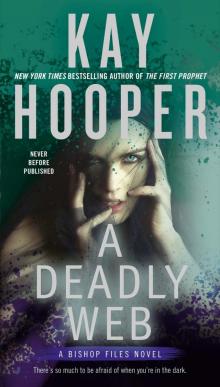 A Deadly Web
A Deadly Web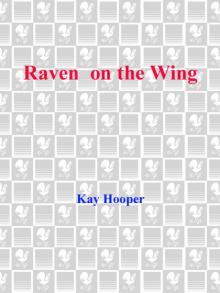 Raven on the Wing
Raven on the Wing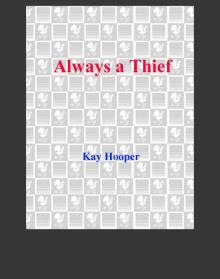 Always a Thief
Always a Thief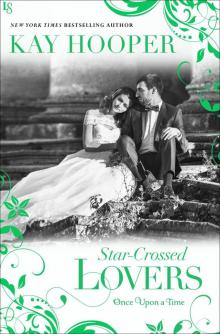 Star-Crossed Lovers
Star-Crossed Lovers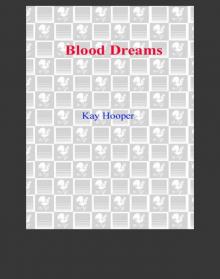 Blood Dreams
Blood Dreams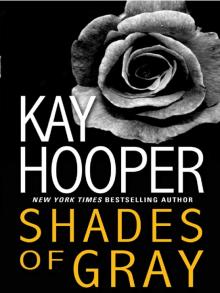 Shades of Gray
Shades of Gray Rebel Waltz
Rebel Waltz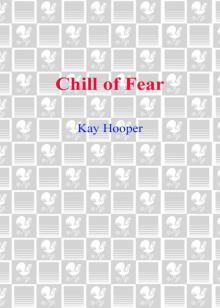 Chill of Fear
Chill of Fear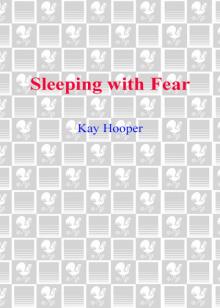 Sleeping With Fear
Sleeping With Fear After Caroline
After Caroline Time After Time
Time After Time Haunting Rachel
Haunting Rachel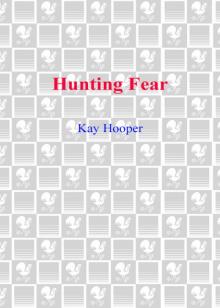 Hunting Fear
Hunting Fear Out of the Shadows
Out of the Shadows Whisper of Evil
Whisper of Evil Blood Sins
Blood Sins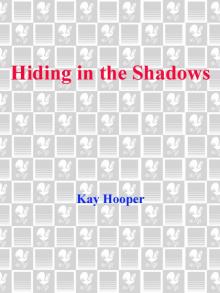 Hiding in the Shadows
Hiding in the Shadows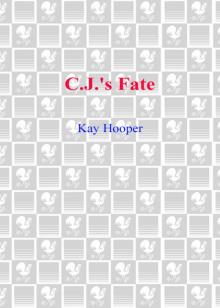 C.J.'s Fate C.J.'s Fate C.J.'s Fate
C.J.'s Fate C.J.'s Fate C.J.'s Fate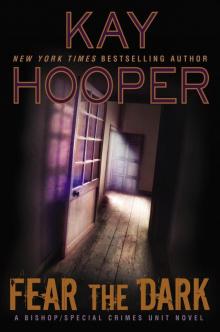 Fear the Dark
Fear the Dark Illegal Possession
Illegal Possession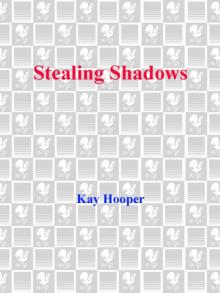 Stealing Shadows
Stealing Shadows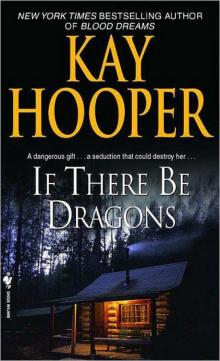 If There Be Dragons
If There Be Dragons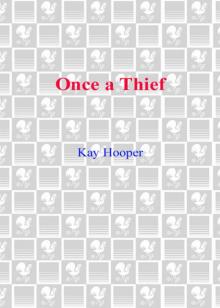 Once a Thief
Once a Thief In Serena's Web
In Serena's Web On Wings of Magic on Wings of Magic
On Wings of Magic on Wings of Magic Hostage
Hostage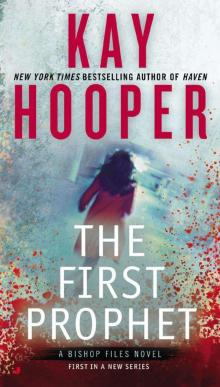 The First Prophet
The First Prophet Through the Looking Glass
Through the Looking Glass Golden Flames
Golden Flames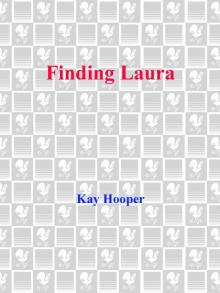 Finding Laura
Finding Laura Haven
Haven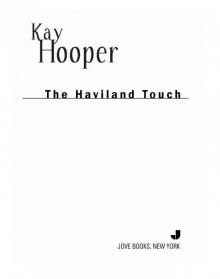 The Haviland Touch
The Haviland Touch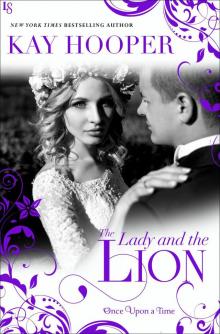 The Lady and the Lion
The Lady and the Lion Haunted
Haunted Velvet Ligntning
Velvet Ligntning Blood Ties
Blood Ties Adelaide, the Enchantress
Adelaide, the Enchantress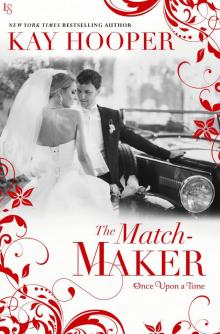 The Matchmaker
The Matchmaker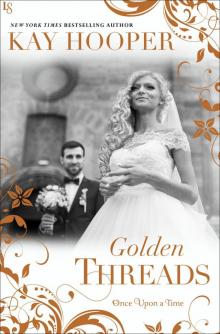 Golden Threads
Golden Threads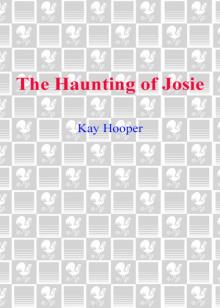 The Haunting of Josie
The Haunting of Josie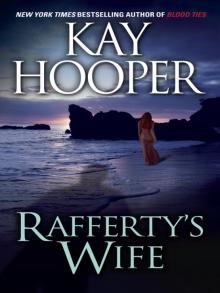 Rafferty's Wife
Rafferty's Wife Amanda
Amanda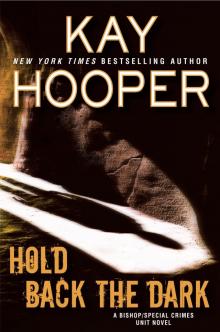 Hold Back the Dark
Hold Back the Dark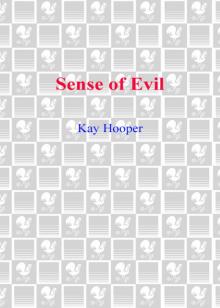 Sense of Evil
Sense of Evil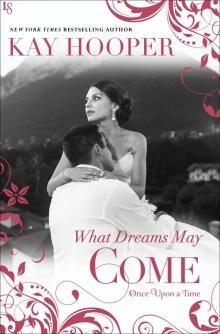 What Dreams May Come
What Dreams May Come Larger Than Life
Larger Than Life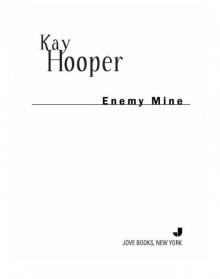 Enemy Mine
Enemy Mine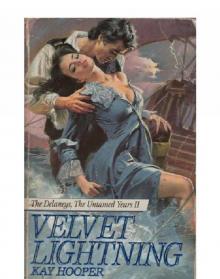 Velvet Lightning
Velvet Lightning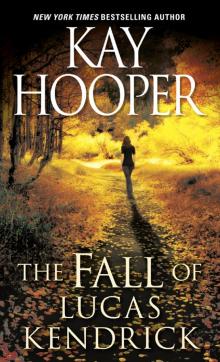 The Fall of Lucas Kendrick
The Fall of Lucas Kendrick Aces High
Aces High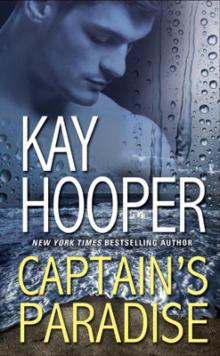 Captain's Paradise: A Novel
Captain's Paradise: A Novel The Wizard of Seattle
The Wizard of Seattle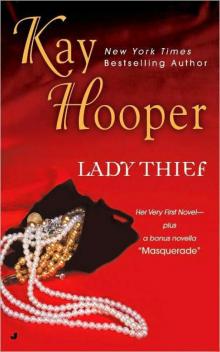 Lady Thief
Lady Thief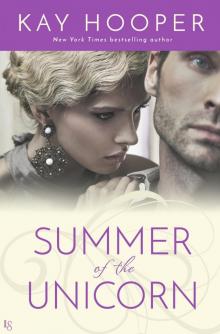 Summer of the Unicorn
Summer of the Unicorn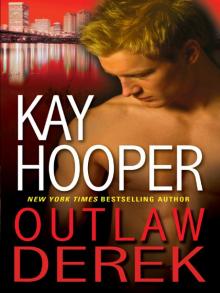 Outlaw Derek
Outlaw Derek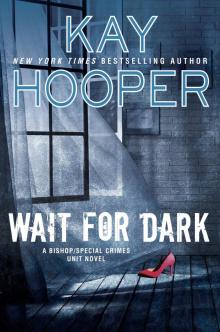 Wait for Dark
Wait for Dark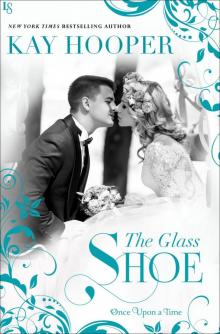 The Glass Shoe
The Glass Shoe It Takes a Thief
It Takes a Thief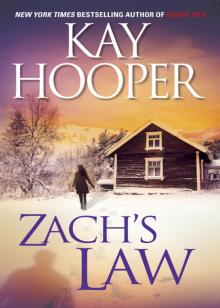 Zach's Law
Zach's Law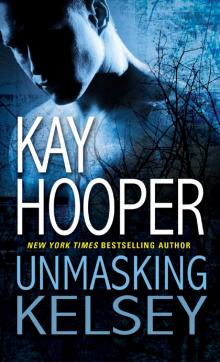 Unmasking Kelsey
Unmasking Kelsey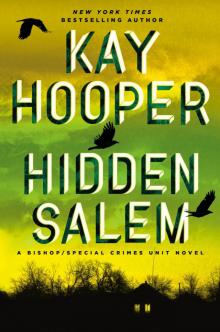 Hidden Salem
Hidden Salem